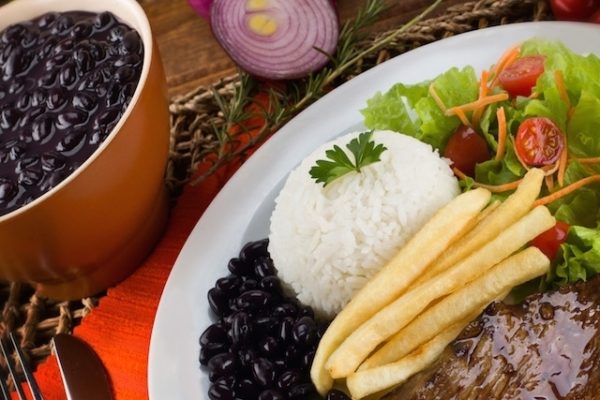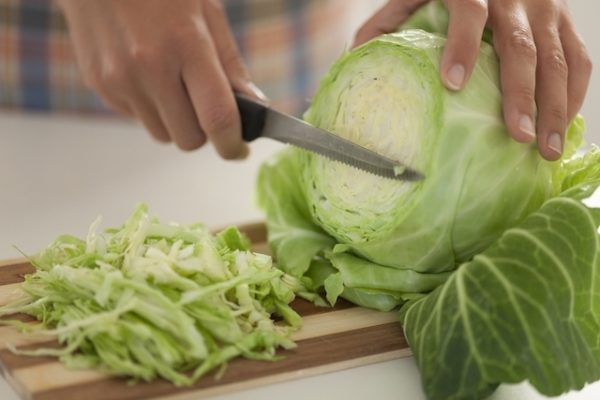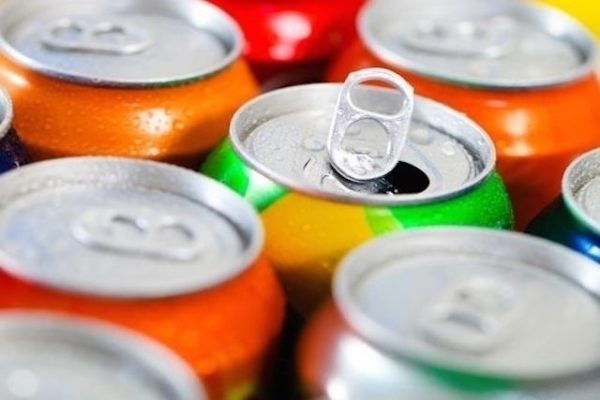Foods that cause gas, such as beans and broccoli, for example, have a large amount of fiber and carbohydrates that are fermented by the intestinal flora during digestion, causing flatulence and bloating, and the intestinal intolerance to these foods varies from person to person.
For this reason, it is important for the nutritionist to carry out an evaluation that allows identifying which foods produce gases and developing a nutritional plan adapted to the person’s needs.
It is not always necessary to remove this type of food from the diet, because reducing the amount and frequency with which it is eaten, may be sufficient for the body to be able to tolerate them, decreasing the production of gases.
1. Beans

Beans and legumes in general are known to cause intestinal gases. This is because they are naturally rich in fibers and resistant starches such as raffinose, which are not digested by the body, being fermented by bacteria in the colon, producing excess gases.
There are some techniques that can help reduce the gases produced by consuming beans, such as soaking them for 12 hours, for example.
2. Vegetables

Some vegetables such as broccoli, cabbage, Brussels sprouts, cauliflower, onions, garlic and asparagus can cause excess gas. This is because, like beans, these foods are rich in fiber and, in addition, they have raffinose that is not digested and fermented in the intestine.
3. Fruits

Fruits, some vegetables and certain products, such as pasteurized juices, for example, contain a type of sugar called fructose, whose concentration varies with the type of food. This type of sugar is not fully absorbed in the intestine, and may favor an increase in gas production.
In addition, fruits such as apples, peaches, pears and plums also contain soluble fiber that can cause excess gas in some people.
4. Milk and dairy products

Lactose is a sugar present in milk and its derivatives. When a person has lactose intolerance, it means that their body does not contain enough lactase, an enzyme that digests that sugar in the intestine. As it is not digested, it is used by intestinal bacteria, which release hydrogen and short-chain fatty acids, producing gases.
In such cases, the person can substitute dairy products for others without lactose or vegetable drinks, such as almond milk, for example. In addition, it is important to check the nutrition label, as some products may contain lactose among its ingredients.
5. Gum

Chewing gum or eating sweets favors the intake of air, known as aerophagia, producing gas and intestinal discomfort. In addition, some chewing gum or caramels may also contain sorbitol, mannitol or xylitol, which are sugars that produce gases when fermented in the colon.
6. Soft drinks

It is important to avoid soft drinks, carbonated water, beers and other carbonated drinks, as they favor the entry of air into the intestine, causing gases. Drinking straws should also be avoided.
7. Oats

Oats and oat bran or oats, as well as some whole foods, can cause gas because they are rich in fiber, raffinose and starch, which favor the formation of gases in the intestine.
8. Peas

Peas, in addition to containing fructose and fermentable fibers in the intestine, also contain lectins, which are associated with bloating and excess gas production.
How to fight gases naturally
To help fight gases naturally, it is important to follow the tips:
- Avoid drinking liquids during meals;
- Consume 1 natural yogurt a day to improve the intestinal flora;
- Eat fruits that stimulate the intestine in the case of people with constipation, such as pineapple or papaya, because they are fruits that promote digestion;
- Consume small portions of food;
- Avoid drinking liquids with a straw;
- Chew your food well.
In addition, there are teas that can help reduce gas production, such as fennel, cardamom, gentian and ginger, for example.
